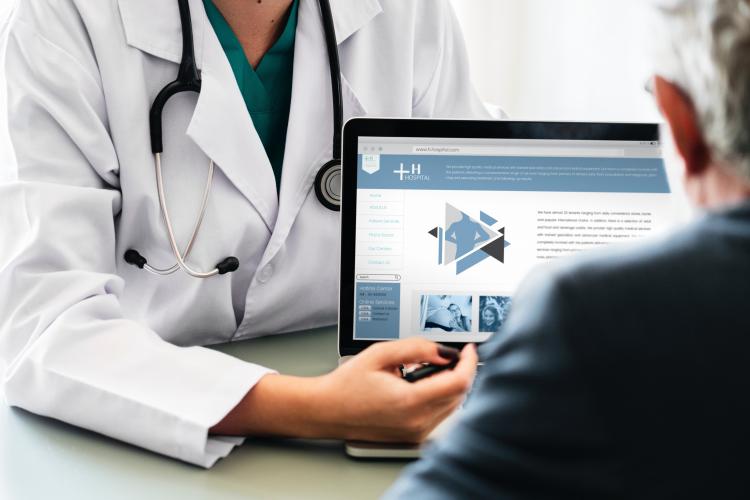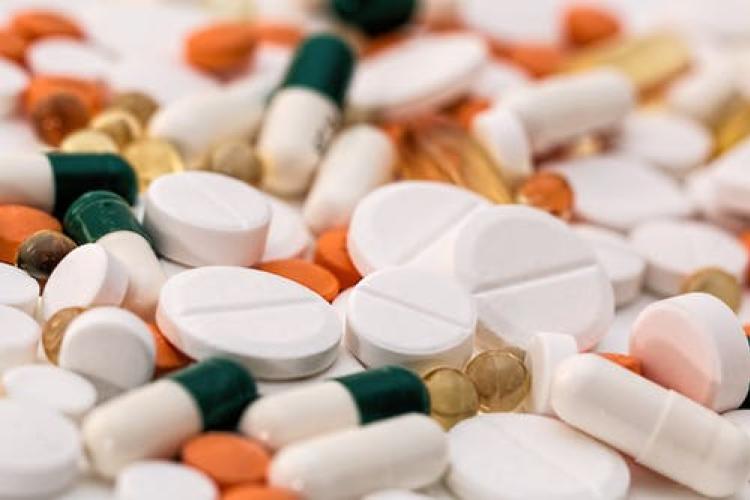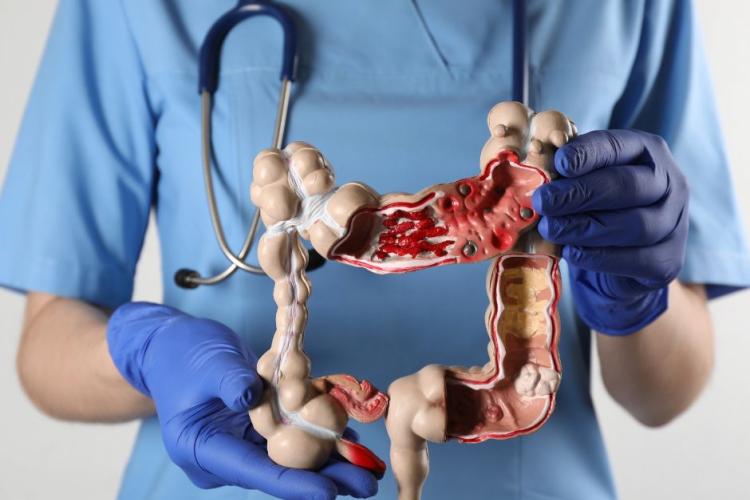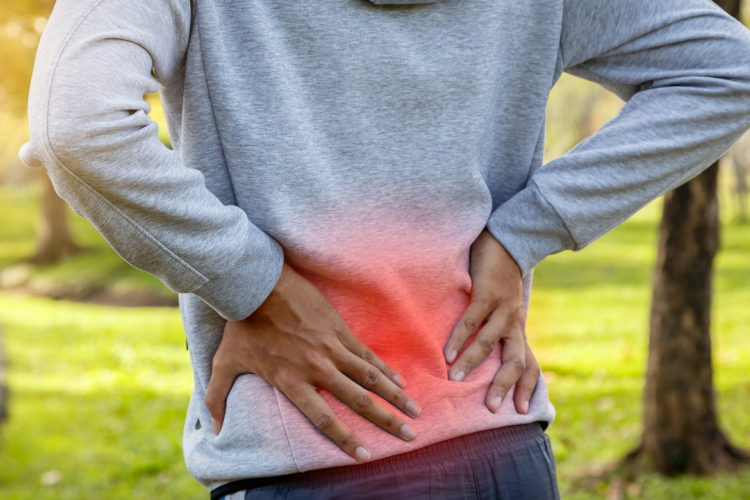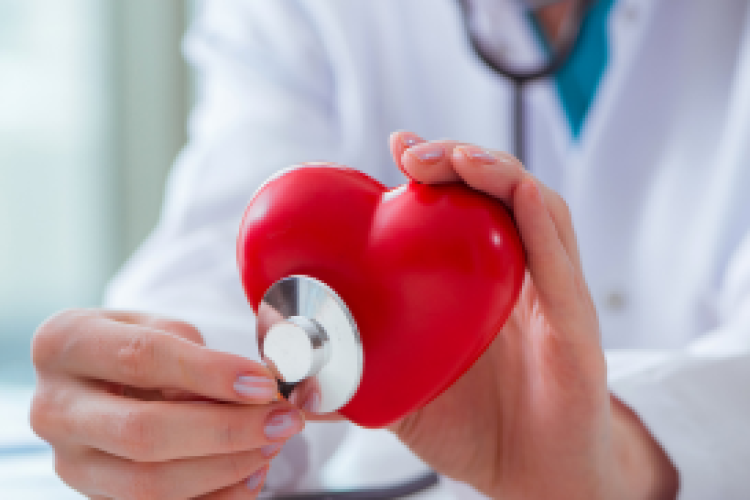Updated 8.23.22
As cases of monkeypox grow in the New York metropolitan area, The Jacobs Family Pride Wellness Center in Nyack is providing vaccinations and is ready to test and treat patients with the disease. Barry S. Zingman, M.D., attending physician at the Center and Medical Director of the AIDS Center at Montefiore Medical Center, says his patients have many questions about the disease, including how it spreads, who is at risk, who should get the vaccine, and what happens when a person has monkeypox. Here, he answers frequently asked questions:
Understanding Monkeypox
Q: What is monkeypox?
A: Monkeypox is a formerly rare disease caused by infection with the monkeypox virus. The virus is part of the same family of viruses that causes smallpox. Monkeypox symptoms are similar to smallpox symptoms, but milder, and monkeypox is rarely fatal. Monkeypox is not related to chickenpox.
Most cases have been among men who have sex with men. It appears the virus is mostly transmitted through close, intimate contact.
Q: What are the symptoms of monkeypox?
A: Symptoms of monkeypox can include:
- Fever
- Headache
- Muscle aches and backache
- Swollen lymph nodes
- Chills
- Exhaustion
- A rash that can look like bumps, pimples or blisters that appear on the face, inside the mouth, and on other parts of the body, like the hands, feet, chest, genitals, or anus.
The rash goes through different stages before healing completely. The illness typically lasts two to four weeks. Sometimes people get a rash first, followed by other symptoms. Others only experience a rash. The rash can have as few as one lesion, or as many as hundreds.
Q: How does monkeypox spread?
A:Monkeypox spreads in different ways. The virus can spread from person to person through:
- direct contact with the infectious rash, scabs, or body fluids
- respiratory secretions during prolonged, face-to-face contact, or during intimate physical contact, such as kissing, cuddling, or sex
- touching items (such as clothing or linens) that previously touched the infectious rash or body fluids
Monkeypox can spread from the time symptoms start until the rash has fully healed and a fresh layer of skin has formed.
Q: How can I avoid monkeypox?
A: Take the following steps to prevent getting monkeypox:
- Avoid close, skin-to-skin contact with people who have a rash that looks like monkeypox.
- Do not touch the rash or scabs of a person with monkeypox unless you have medical gloves on.
- Do not kiss, hug, cuddle or have sex with someone with monkeypox.
- Do not share eating utensils or cups with a person with monkeypox.
- Do not handle or touch the bedding, towels, or clothing of a person with monkeypox unless you are wearing medical gloves and an N95 or KN95 facemask.
- Wash your hands often with soap and water or use an alcohol-based hand sanitizer.
- Dispose of the gloves right after handling potentially infected linens, clothing, skin or body fluids. Wash carefully with soap and water or use an alcohol-based hand sanitizer after removing the gloves.
Recognizing and Treating Monkeypox
Q: Is my rash monkeypox?
A: Rashes are common and caused by many things. The rash from monkeypox can be one lesion up to many, and it can take different forms. If you’re at risk of having been exposed to monkeypox, you should have any rash checked out. It’s important to know that the monkeypoxrash may be only in the mouth or rectum. If you have sores or pain in those areas, it could be a sign of monkeypox that needs to be evaluated.
Q: I have monkeypox. When will it get better?
A: The answer varies somewhat depending on how severe the infection is to begin with, and whether you are taking medication to treat it. A mild infection with a few lesions may go away in one to two weeks. If you have many lesions, it could take up to four weeks, rarely longer. If you are receiving treatment, it will help to resolve the infection faster, and you’ll feel better sooner.
Q: What is the treatment and who should receive it?
A: Antiviral therapy used to treat monkeypox is usually given in pill form for two weeks. It can be given intravenously in the hospital if you can’t take pills. Your doctor will determine if your case is severe enough to require treatment.
Q: How do I manage pain from monkeypox lesions?
A: Monkeypox lesions can be extremely painful. They can cause difficulty going to the bathroom, eating or drinking. Your doctor may recommend stool softeners, or topical anesthetic gels for the genitals, rectum or mouth. Pain medications – over-the-counter or prescription – may be helpful. A so-called “magic mouth wash” may help with pain from sores in the mouth.
Your doctor may recommend you consult with other specialists, such as a gastroenterologist, urologist, dermatologist or ear, nose and throat (ENT) doctor to help manage symptoms.
Q: If I have monkeypox, how carefully do I need to isolate from others and for how long?
A: It’s very important to try not to give this to other people. We recommend patients isolate from family, friends, and pets and do not go to work until the scabs have formed and fallen off of all the lesions and there is new skin growing back. This could take two to four weeks.
During the isolation period, try to keep to yourself as much as you can. If you have an active rash or other symptoms, stay in a separate room or area away from people or pets you live with, when possible. If you are sharing an apartment or house with others, wear gloves and a mask when in a common area such as the kitchen, bathroom or living room and keep any skin lesions covered with clothes or a bandage. In those common areas, things you’ve been in contact with should be carefully cleaned before others touch them. If you can, wash your own bedding and clothing separate from other people’s. If someone else is washing your bedding and clothing, they should wear gloves and a mask.
Anyone who is living with or caring for you should wear personal protective equipment including gloves when they come into contact with you or things you’ve touched. They should also get vaccinated against monkeypox.
Q: How serious can this get?
A: In the current monkeypox outbreak, deaths from the illness have occurred but have been rare. The seriousness of this pandemic has been primarily from severe symptoms that people get and the risk of infecting others. It’s been unusual so far that people need to be admitted to the hospital for supportive care (for people who cannot eat or have a bowel movement, for example) because of monkeypox symptoms.
Vaccination
Q: Who should get vaccinated against monkeypox?
A: The Centers for Disease Control and Prevention (CDC) recommends vaccination for people who have been exposed to monkeypox and people who are at higher risk of being exposed to monkeypox, including:
- People who have been identified by public health officials as a contact of someone with monkeypox
- People who may have been exposed to monkeypox, such as:
- People who are aware that one of their sexual partners in the past 2 weeks has been diagnosed with monkeypox
- People who had multiple sexual partners in the past 2 weeks in an area with known monkeypox
- People whose jobs may expose them to monkeypox including lab workers who perform testing for monkeypox and some designated healthcare or public health workers.
Q: I haven’t been sexually active in the last month but I hope to be in the near future – should I (and can I) get the monkeypox vaccine now?
A: Currently, we are judging people’s eligibility for the vaccine on a case-by-case basis, because supplies are still limited. If a person is in a high-risk group and is socializing with high-risk individuals – even if they aren’t currently sexually active, but plan to be – we will in most cases offer the vaccine to that person. Once the vaccine supply becomes more readily available, it will be offered to more people. Fortunately, the vaccine supply is increasing, although slowly.
Q: What do we know about the vaccine’s effectiveness and side effects?
A: The current outbreak is involving many more people than ever before and seems to be spreading much more easily than ever before. We’ll find out over the next few months exactly how well the monkeypox vaccine is working with this outbreak. We do know that when the vaccine has been used in other outbreaks it has been approximately 85% effective in preventing monkeypox. We’re hoping the vaccine is at least as effective, if not better, in the current outbreak.
The vaccine for monkeypox is well tolerated. Serious side effects are extremely rare and are greatly reduced as long as we screen for allergies to some of the components in the vaccine. In particular, we ask if patients are allergic to certain antibiotics or have a severe allergy to eggs.
The most common side effects have been typical of any vaccine injection. These include some pain, swelling, redness or development of a lump at the injection site. Occasionally people will notice some tiredness or headache in the day or so afterward.
Q: Is the vaccine experimental?
A: The Jynneos monkeypox vaccine that is currently in use is not experimental. It received full FDA approval in 2019. It has been fully approved in Europe since 2013. So it is not a new vaccine. It is a much-improved version of the smallpox vaccine that has been used for decades.
Q: Can I get the vaccine at the Jacobs Family Pride Wellness Center of Montefiore Nyack Hospital?
A: We have been receiving a steady and strong supply of vaccines from the Rockland County Department of Health. We are closely partnering with them to administer the vaccine to at-risk people living in Rockland and the surrounding areas. Currently, we have appointments on Monday and Friday afternoons.
The Jacobs Family Pride Wellness Center of Montefiore Nyack Hospital is the first in the area to bring LGBTQ+-dedicated services to the residents of Rockland, Orange, Bergen and Lower Hudson Valley. In partnership with the Oval Center and AIDS Center at Montefiore and the Phyllis B. Frank Pride Center of Rockland County, the Pride Wellness Center offers affirming and confidential community-based medical care for the LGBTQ+ community. For a vaccine appointment or more information, call 845-348-7284.



 Upcoming Events
Upcoming Events